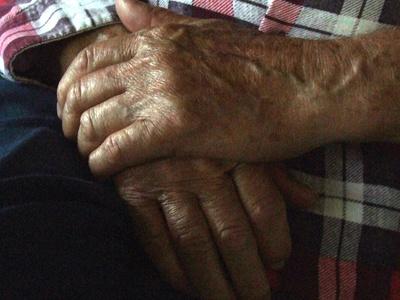You probably use your hands for numerous activities throughout the day. Your hands help you dress, brush your hair and wash your face every morning. You use your hands to eat, drink and perform your daily work. However, like many people, you may not think about your hands until they start to hurt. A number of conditions can cause the joints in your fingers to ache. Getting relief from hand pain requires finding the cause and treating any underlying conditions.
Symptoms
Hand pain can appear as a mild discomfort around the joints or it may be severe. Regardless of the cause, the joints may become more painful when you move them. Some conditions that cause joint pain in your hands also cause swelling and redness near the areas of pain. When the pain results from a disorder affecting your entire body, such as a general infection, you may notice other symptoms, such as fever, weakness and pain in other areas of your body.
Reasons for Pain
Pain around the joints in your hands can come from injuries and accidents. Overuse and repeated movements can cause stress and make the muscles and joints ache. A common cause of joint pain is arthritis, and it can affect the joints and tendons in your fingers and hands, causing significant pain, swelling and disfigurement. Hypothyroidism may lead to swelling in the small joints of your hands, causing pain in these areas.
Diagnoses
Unless you remember experiencing an injury to your hands, you may need to visit your doctor to receive an accurate diagnosis of your hand pain. Your doctor may want to know when you first noticed the pain, the severity of your pain, any regular activities that may aggravate the pain, medications you take and other symptoms that you experience. He may need to run some tests to pinpoint the cause of your pain.
Medical Treatments
Your doctor will base your treatment options on the underlying cause of your pain. If hypothyroidism causes your hands to hurt, your doctor may decide to place you on a thyroid hormone treatment that can relieve your pain. If an injury causes your pain, you may require surgery or stabilization and rest until it heals. If your doctor suspects you have arthritis, she may prescribe medications and suggest that you perform exercises to keep your joints limber.
Self-Help
Sometimes sore joints need rest to recover. Avoid repetitive movements or activities that cause you to clench your fingers and hands, causing discomfort. Apply heat and cold to your sore hands, alternating between the two temperatures. Eat a well-balanced diet, and get plenty of rest. These practices can help manage pain from a variety of causes. Nonprescription medications, such as nonsteroidal anti-inflammatories and acetaminophen, may help reduce your discomfort.
Photo Credit
- weathered hands image by robert mobley from Fotolia.com





